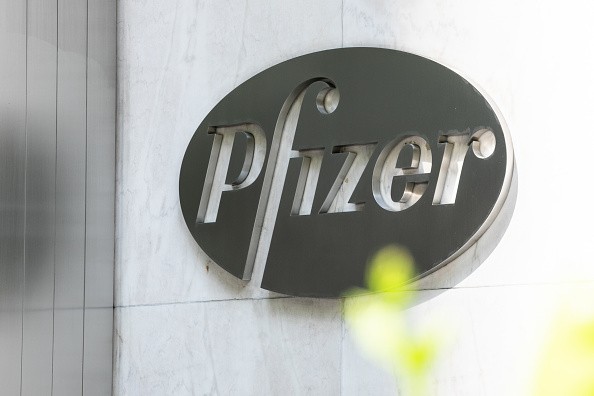Pfizer COVID-19 Vaccine Up for FDA Scrutiny Following 2 Allergic Reactions in UK
Pfizer's COVID-19 vaccine will be going through an FDA committee vote on Thursday, the last step to reach approval, as two allergic reactions reported in the UK raised concerns.
If Pfizer's vaccine receives approval from the FDA's indepdendent committee, the nation might receive its first doses of a COVID-19 vaccine as early as the weekend.
But one hurdle to this is allergic reactions being reported in the UK, and it is a factor that the FDA will not be taking into consideration when they decide on the Pfizer vaccine's fate, reported CNBC.
Experts are looking into whether the allergic reactions were actually from the Pfizer shot, but some said it was not surprising.

Two Cases of Allergic Reactions to Pfizer Vaccine Recovering Well
The U.K's Medicines and Healthcare products Regulatory Agency updated its guidance saying people with "significant" allergic reactions should forgo the Pfizer vaccine, The Associated Press said in a report.
Both cases, who were members of Britain's National Health Service, were recovering well, according to the national medical director for the NHS.
It was still unknown what caused the said allergic reaction. Pfizer's vaccine candidate, called BNT162b2, did not have preservatives or egg products unlike some other vaccines, said a report from USA Today.
The said ingredients are said to be known triggers of allergic reactions to certain vaccines.
While allergic reactions weren't proven to be a significant issue in the U.S. trial, it did keep out volunteers who may have severe reactions to the shot, said co-head of Operation Warp Speed Moncef Slaoui.
Read also: FACT CHECK: Did Pfizer Research Head Say COVID-19 Vaccine Could Cause Female Sterilization?
He assured that the FDA's independent Vaccines and Related Biological Products Advisory Committee (VRBPAC) will be discussing the possible safety issue.
Slaoui also suggested the agency will likely also advise people with severe allergic reactions not to take the vaccine.
There were more than 20,000 volunteers for the U.S. trial and they were given two doses of the vaccine.
Pfizer Outshines Other COVID-19 Vaccines in Progress
The VRBPAC will be reviewing data from Pfizer and German startup BioNTech on their vaccine. The process could take until late Thursday.
Pfizer and BioNTech requested for "emergency use authorization," which is shy of a full approval.
While the companies managed to give short-term safety and efficacy date, the process was compressed within the 10 months of work on the vaccine.
FDA did assure that even with the short time frame, corners have not been cut, said another USA Today report.
Experts Have Mixed Reactions to Pfizer Vaccine Allergic Reactions
Dr. Peter Hotez, a pediatrician and dean of the National School of Tropical Medicine at Baylor College of Medicine, said the allergic triggers could pose a major challenge in the country.
He noted that about three to four million Americans bring EpiPens at all times in case of allergic reactions and some 50 million have less severe reactions.
He added that the occurrence of allergic reactions was "inconsistent" and "puzzling."
Meanwhile, Stephen Evans, a professor of pharmacoepidemiology, told Reuters that people don not need to be anxious about the triggers.
He said the for people who experience severe reactions where they need to carry EpiPens at all times, vaccination has to be delayed until the incident has been clarified.
"I would have said, 'If you've had anaphylactic-level reactions to vaccines, we want to know about that so we take extra care,'" Mayo Clinic virologist Gregory Poland said.
"That doesn't mean I wouldn't immunize you. But I would do it in a more controlled setting."
Subscribe to Latin Post!
Sign up for our free newsletter for the Latest coverage!
© 2026 Latin Post. All rights reserved. Do not reproduce without permission.













